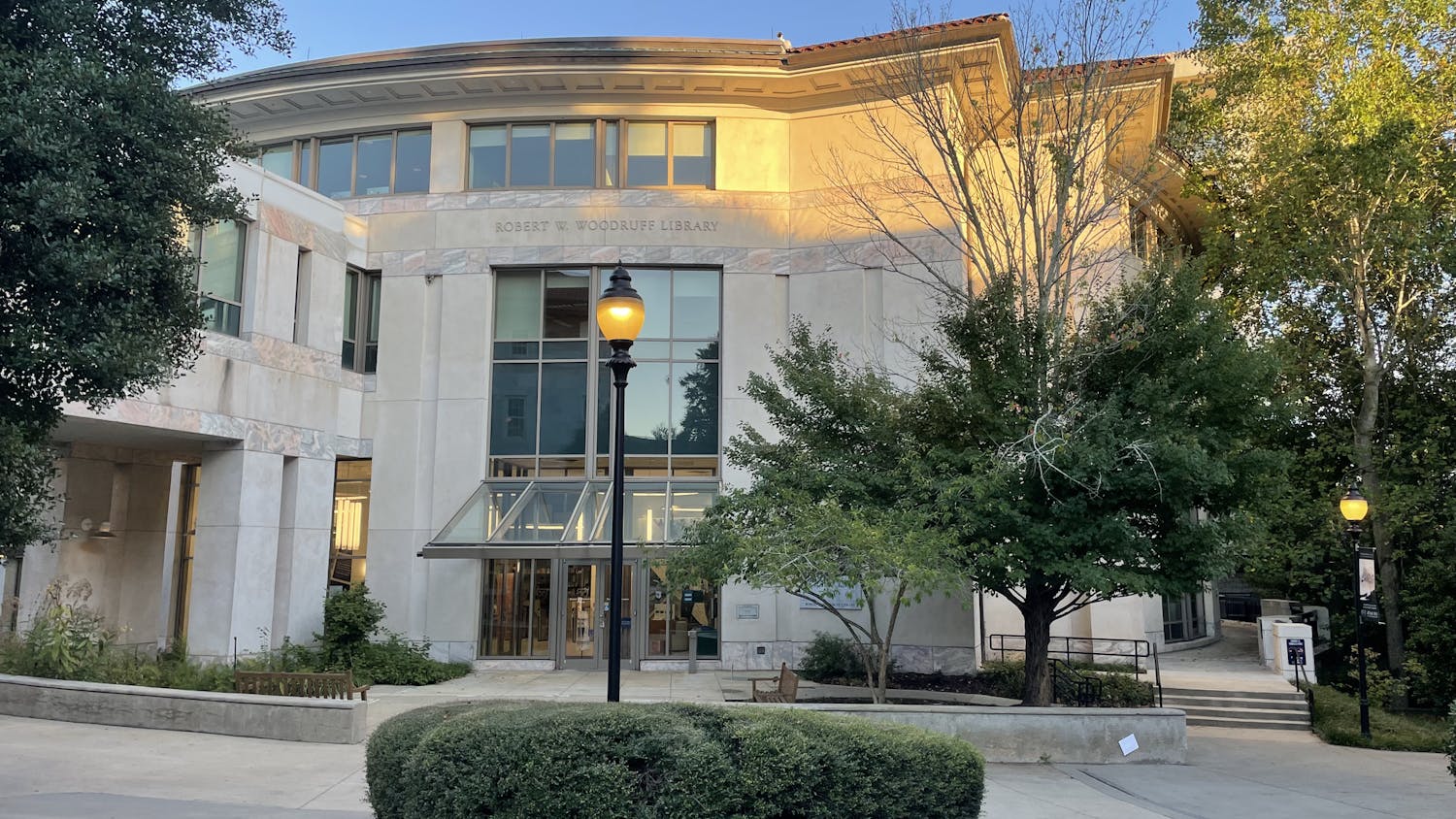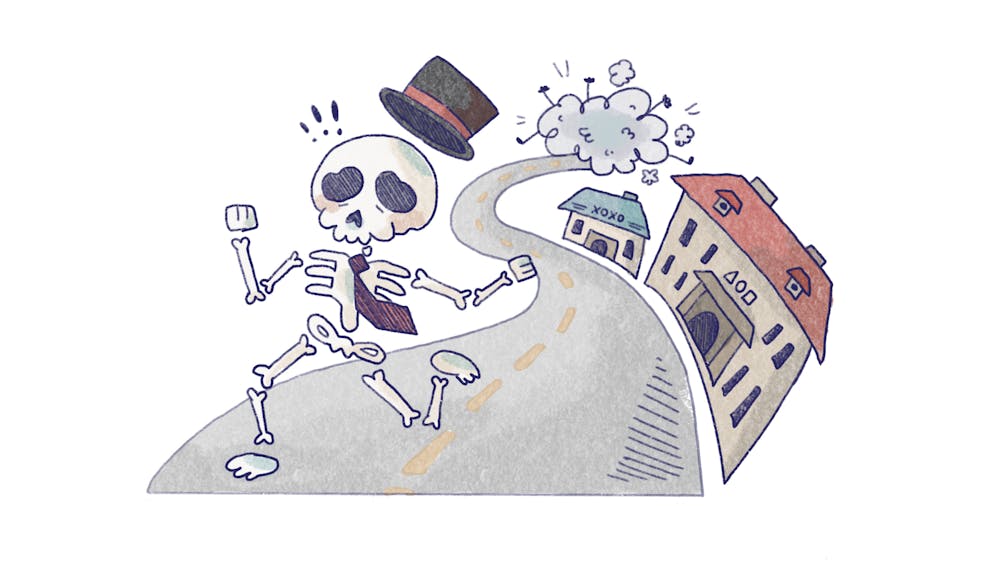Content Warning: This article contains references to sexual assault.
Growing up as a student in an Orthodox Jewish day school in New York, antisemitism and its deadly consequences were never far from my mind. I was surrounded and taught by those who survived the horrors of the Holocaust or grew up in its shadow. I was raised by a first-generation American whose parents and grandparents survived the horrors of the Nazi regime by pure chance while the rest of their family’s blood was spilled in the concentration camps of Europe.
I learned from a very young age what happens when antisemitism is allowed — and even extolled — in the public forum. I learned the scars of war as I saw them through my own grandfather. Haunted by the horrors of his childhood, he would still wake up in the middle of the night, 75 years later, convinced that Nazi troops had stormed his house looking for Jews.
This is not meant to garner pity. Lord knows that pity for the Jewish people no longer exists in this atmosphere of dichotomous narratives. But the virulent antisemitism that has reared its ugly head once again cannot be tolerated. Any attempts at such must be shut down and its proponents disciplined.
In the latest open letter fired in the Wheel, a number of students and professors called on Emory University President Gregory Fenves, the son of a Holocaust survivor, to retract his statement on antisemitism, which he made in response to the Oct. 25 Stop Cop City protest that included antisemitic langauge. The letter claims that the chant “from the river to the sea,” is not antisemitic at its core, but rather, simply a call for Palestinian statehood. Moreover, the author of the letter quotes a vague definition of antisemitism from the highly criticized 2021 Jerusalem Declaration on Antisemitism to purposefully serve this narrative. By quoting such a definition, the author and readers alike would assume that Jews would be OK with calling for their state’s destruction.
I find it hard to believe that anyone wouldn’t find this chant antisemitic when they learn its origins. The quote “from the river to the sea” is derived from Hamas’ charter, which states that Palestine “extends from the River Jordan in the east to the Mediterranean in the west,” completely erasing Israel as a state. Additionally, former Hamas leader Khaled Mashal invoked this phrase in a 2012 speech celebrating Hamas. Lastly, lest anyone try to claim that Hamas — which the United States designates as a terrorist organization — is not antisemitic at its core, I will highlight Hamas’ original 1988 charter, which contains a disturbing call for violence. Article 7 states “The Day of Judgment will not come about until Moslems fight Jews and kill them. Then, the Jews will hide behind rocks and trees, and the rocks and trees will cry out: ‘O Moslem, there is a Jew hiding behind me, come and kill him.’”
How then can anyone claim that the phrase “from the river to the sea” is not antisemitic? How can anyone claim that after the horrors we saw on Oct. 7, Jews cannot tell the world what antisemitism is? How can anyone justify invoking a phrase coined by a terrorist organization whose stated goal is to kill every Jew?
This brings me to the core of my argument: Non-Jews cannot tell Jewish people what isn’t antisemitic.
Just as the public recognizes claims of racism from various racial groups, the Jewish community deserves that same acknowledgment and respect.
To deny the Jewish community this right is to deny them of their humanity — of the basic idea that they deserve the same protections as any other minority group.
Antisemitism, both in the United States and globally, has risen to a level not seen since the Holocaust. There is no shortage of recent antisemitic incidents at schools across the United States, including a threat to rape and slit the throats of Jewish students at Cornell University (N.Y.). And sadly, as the deadly war in Gaza — where many innocent people have died — continues to unfold, I only expect that the number of antisemitic incidents will continue to rise. But the current conflict does not justify invoking antisemitic phrases in the name of freeing Palestine.
I call on the students and professors who supported this statement to stop for a moment and think long and hard about what calling for “from the river to the sea” actually means. For Jews, it means the destruction of Israel as a state and the mass murder or expulsion of Jews for the second time in less than a century. This does not mean one cannot protest for a Palestinian state; I wish there was one as well. But I will not stand idly by when this yearning for a state veers into abject antisemitism.
Lastly, in response to the purposefully vague definition of antisemitism utilized in the faculty letter, I call on the University to adopt the International Holocaust Remembrance Alliancedefinition of antisemitism, which is the working definition adopted by 43 nations, 31 U.S. states and the federal government.
This definition offers many examples of modern-day antisemitism, including: “Denying the Jewish people their right to self-determination, e.g., by claiming that the existence of a State of Israel is a racist endeavor” and “applying double standards [to the state of Israel] by requiring of it a behavior not expected or demanded of any other democratic nation.”
Repeatedly observed in public debates and protests on the conflict, these two instances serve as prime examples of modern-day antisemitism, and those who propagate such remarks should recognize their fundamentally antisemitic nature.
Lastly, I recognize that this is a time of immense fear and anxiety for many of us, Jewish or not. In light of this, I will finish this Op-Ed with a quote from one of Fenves’ previous statements in light of the Oct. 7 attacks and the resulting Israeli response.
“Emory’s motto, the wise heart seeks knowledge, is based on an understanding that we treat each other with respect even, and especially, in moments of disagreement. That is my plea to you in the coming days — seek knowledge but do so in a way that acknowledges our shared humanity.”
I hope that in the coming days and weeks we can acknowledge our shared humanity and move forward toward a more peaceful future.’
If you or someone you know experienced sexual assault, you can access Emory’s Title IX resources at 404-727-0541 orhttps://equityandcompliance.emory.edu/title-ix/index.html and the Office of Respect at https://respect.emory.edu/ or their hotline 24/7 at (470) 270-5360. You can reach the RAINN National Sexual Assault hotline 24/7 at (800) 656-4673 or https://hotline.rainn.org/online. You can reach the Atlanta Grady Rape Crisis Center crisis hotline 24/7 at (404) 616-4861 or gradyrapecrisiscenter@gmh.edu and the Decatur Day League Sexual Assault Care and Prevention crisis hotline 24/7 at (404) 377-1428.
Daniel Diamond (25B) is from New York.









